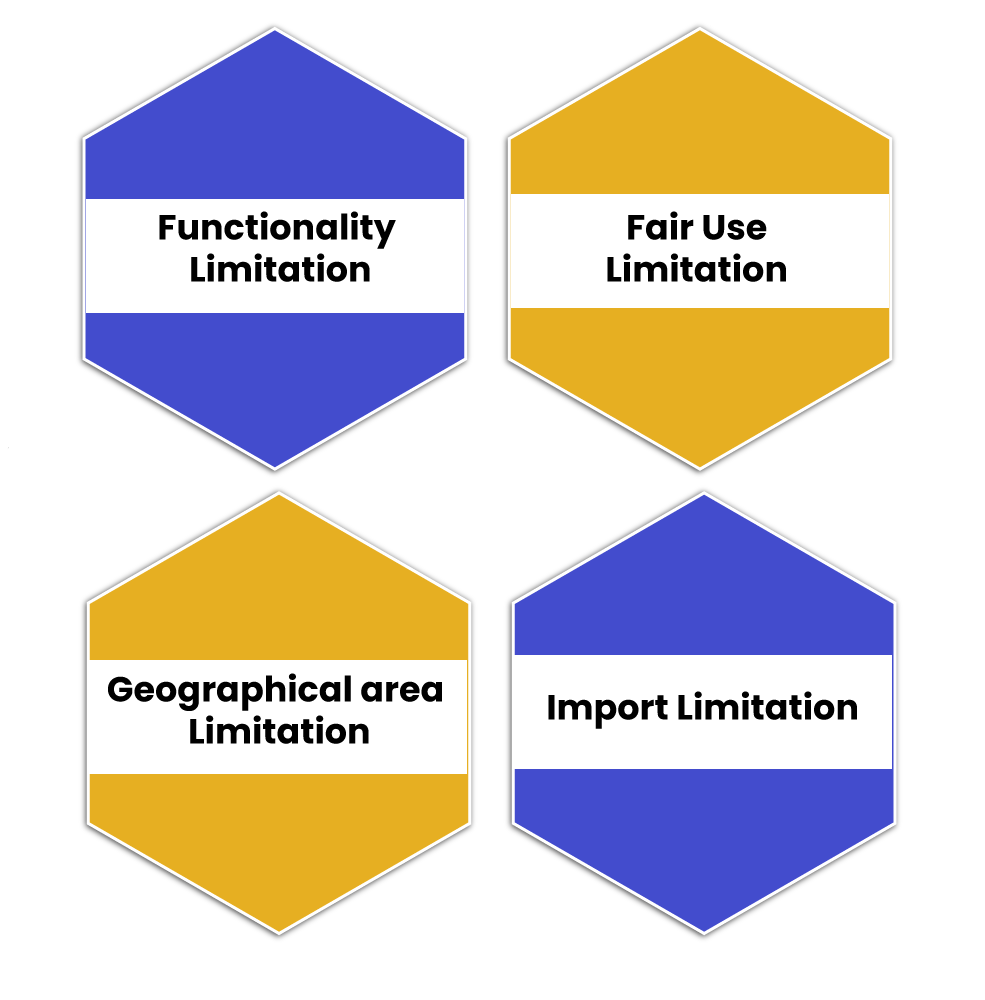All You Need to know about Limitations of Trademark Law

Japsanjam Kaur Wadhera | Updated: Feb 09, 2021 | Category: News, Trademark
The Trademarks Act, 1999 allows for the protection of well- known trademarks in 2 ways that is, an action against the registration of similar trademarks and action against the misuse of well- known trademarks. Trademark registration is important since it is a way to protect and secure a brand from any trademark infringement. Where on the one hand the registered trademark provides many advantages and benefits, on the other hand it comes with a certain set of limitations. Such limitations arise on the basis of the nature of trademarks. This article will discuss all you need to know about the limitations of trademark law in India.
Table of Contents
Importance of Trademark Registration
Trademark registration is important as it provides a distinctive identity to a brand and the services that are offered by them. It assures the standard of quality of the products or services and with the trademark registration, it is quite easy to advertise a brand as it is easily recognized by the people and trusted by them. It creates a reputation in the market and it helps the owner of the trademark to protect its brand for being infringed or misused by others and provides many legal rights and benefits to the registered trademark holder.
Eligibility to File for Trademark Registration
A trademark application can be filed by any person who wishes to give its brand a trademark and protect it from being infringed by others. Therefore the applicant himself or by an agent authorized by him can file for trademark registration. The registration can be done either through online at the official website of trademarks or in person or post.
What are the Limitations of Trademark Law?

Functionality Limitation
One of the limitations lies in what can be trademarked. The limitation arises from the fact regarding what can be trademarked and what cannot. A person can secure only certain things with the trademark registration. Any factor that enhances the functionality or usability is not protected under the trademarks act. This limitation suggests that the product must not be non- functional, it must not have any function or purpose to it. For example; if one person sells a product under a typical shape or special packaging which is enough for making it distinct in character, then it is quite possible to get a trademark for that. But however, if such a packaging or shape enhances the usability of the product, then the registration is not possible. This kind of rule helps to maintain a healthy competition between the competitors.
Also, Read: What is the Doctrine of Fair Dealing in Copyright Law?
Fair Use Limitation
The doctrine of fair use is applied to the trademark laws. Under the trademark laws there are many commonly used words and the owner cannot claim exclusive rights over such words if his trademark is used in a different context. Since, many trademarks rely on the words that are commonly used in everyday language; the owner of the trademark cannot enforce his rights on it. For example, a trademark is used in parodies, advertising and non- commercial use in academic articles, media reports etc. therefore, claiming exclusive rights is not allowed if a third party uses a trademark in accordance with the doctrine of fair use. For example, in the case of a trademark “Super Nirma”, the owner of the trademark cannot stop any person from using the work super in their trademark.
According to Section 30(2) (d) of the Trademarks Act, to claim the defence of doctrine of fair use, the user must establish that it is necessary for him/ her to use the registered mark to identify the product in the market.
Geographical Area Limitation
The Trademark applies in the geographical area where it has been imposed. Geographical boundaries plays a crucial role in deciding the in which country the trademark shall be valid. When a trademark is registered in India, then the enforcement of such trademark is valid only within the Jurisdiction of India. If one required protection of trademark in more than one country, a separate international application is required to be applied in that country. Such limitation is even more restricted when it comes to unregistered trademarks, where such trademark is can only be enforced locally.
Import Limitation
Trademark protection cannot prevent parallel imports. Parallel import means the acquisition of products from the rightful owner and selling it further for a less amount via unaccredited channels in the market. The owner of the trademark has no right to prevent the subsequent sale of goods in any part of the country, as his rights over the goods are exhausted after making the first sale. The trademarks act cannot protect against the parallel importation.
Conclusion
The trademark registration is important for a brand to protect its mark from being infringed by others. It helps the companies to boost their business and bring recognition by adding value to its brand. However, there are certain limitations to the protection as well. Such limitations of trademark laws must be taken into consideration by the businesses to function accordingly and grow efficiently.
Also, Read: Difference between Assignment and License under Trademarks Act, 1999














